There’s all kinds of natural remedies and supplements on the market that can apparently help reduce dog shedding, and one of the more popular is fish oil.
Does it work?
Fish oil cannot stop dog shedding completely, but it may help improve your dog’s skin and hair, which in turn may reduce excessive shedding. This is mostly because fish oil contains Omega-3 fatty acids, in particular DHA and EPA, which dogs can only obtain through their diet.
Let’s dig a little deeper into what fish oil is, and why it can potentially help with shedding, so that you can decide if it’s something worth giving a try.
What Is Fish Oil and Why Does It Reduce Shedding?
Fish oil is simply oil that’s derived from oily fish, and the main reason it can help with shedding is because it’s rich in healthy fatty acids like omega-3 and omega-6.
Most dog foods, particularly those with grains, contain an abundance of omega-6. Both are known as essential fatty acids (healthy fats your dog needs) but the most important of the two, at least from a shedding perspective, is omega-3.
Omega 3 fatty acids are known to benefit dogs in a number of ways such as promoting healthy growth and development, reducing inflammation, and improving a dogs skin and coat. So it’s useful for more than just shedding, dogs need this essential nutrient to thrive.
And, like us, they can only get omega-3 through their diet.
That doesn’t mean your dog “needs” fish oil though. Omega 3 can be found in plant-based sources like Brussels Sprouts, walnuts, chia seeds and flaxseed oil for example. As well as from marine sources such as fish, algae and seaweed.

The main difference is that most plant-based sources of omega 3 only contain one form of omega-3 called ALA, which needs to be converted by the body into EPA and DHA in order for humans and dogs to properly benefit from it.
And dogs generally aren’t very good at converting ALA into EPA and DHA.
Which is why marine-sourced omega 3 is (generally) considered better, or at the very least a more efficient source of omega 3, since it already contains EPA and DHA.
Which type of fish oil is best?
Some of the best and most common sources of fish oil include oil derived from wild caught salmon, whitefish, tuna and sardines. But it’s not just the type of fish oil that matters.
It also pays to consider where the fish was caught, how the oil is made, and what additives (if any) it contains. That way, you can be confident you are giving your dog a high quality fish oil supplement that’s more likely to help reduce the shedding, in a safe manner.
How Much Fish Oil Can You Give Your Dog?
First and foremost, you should always consult a qualified veterinarian before giving your dog any supplement, fish oil or otherwise. Because each dog is unique and fish oil, while it can be beneficial, may lead to health issues if you overdose your dog with it.
How much is too much?
The Canine Arthritis Resources and Education website has a table that provides both the recommended and maximum daily dose of fish oil according to your dog’s body weight.
So I highly recommend checking that out, in conjunction with seeking advice from your vet, before deciding how much fish oil to give your dog. That way you can be sure.
Once you have a good idea on how much fish oil is right for your dog, the next thing to consider is what type of fish oil you want to use because it comes in different forms.
For example, you can get straight fish oil supplements that you can add to your dog’s food, capsules, chew treats, kibble that contains omega 3 derived from fish oil, or some simply prefer to feed their dog fresh fish from time to time as part of a healthy, balanced diet.
If you decide to try a supplement, the manufacturer normally specifies the recommended daily dose/feeding amount on the package. And if the fish oil is in the form of a chew treat or capsule for example, it is often as simple as giving your dog the recommended of these number each day.
Is it possible to give your dog too much fish oil?
Yes.
According to the CARE website I linked to earlier, there is an upper limit on how much fish oil is enough. They say that too much may lead to “vomiting and diarrhea, altered platelet function (and therefore the potential for reduced blood clotting), delayed wound healing, weight gain, altered immune function, and more.”
And other trusted sources like PetMD confirm that there’s an upper limit, and state that “between 20-55mg combined EPA and DHA per pound of body weight is safe for dogs and cats.”
So yes, believe it or not, it is possible to overdose your dog on fish oil. And what I found even more surprising is that, according to some reports, it can actually be quite serious.
For example, an article on patch.com tells the story of a woman who almost killed her dog by supplementing too heavily with fish oil. This does seem to be an extraordinary case. But, either way, it illustrates the importance of sticking to the maximum recommended dose and of seeking advice from your vet before supplementing with anything.
Alternative Natural Supplements for Shedding
Many shedding supplements contain omega-3, since this has been shown to naturally improve a dogs skin and coat and therefore reduce excessive shedding. And most omega-3 supplements are made of fish oil because, unlike plant-based omega 3, it’s rich in DHA and EPA.
But it’s not all about fish oil, there are some really great alternatives.
For example, virgin coconut oil may help with shedding when used in supplement form or when applied to the skin. And the main reason for this is because it can help dogs develop a healthier, moisture rich skin and coat thanks to the medium chain triglycerides (MCT) it contains.
For the most part, however, the best approach to reducing shedding is through proper diet. Some supplements can be very effective, but there’s no replacement for an optimal all-round diet that contains all the vitamins, minerals and nutrients your dog needs to thrive.
And when it comes to shedding, I always look for dog food with the highest quality ingredients, least amount of additives, and preferably kibble that contains a good balance of omega 3 & 6.
Aside from diet, reducing shedding mostly comes down to simple things like bathing with a good dog shampoo and brushing with the right brush. See our full shedding guide to learn more.
Bottom Line
Fish oil is a great natural supplement that is known to help reduce excessive shedding, mostly because it contains DHA and EPA omega 3 which is good for your dog’s skin and hair.
No matter how good a supplement is, or claims to be, however, shedding is a fact of life for people with dogs. And managing it is less about supplements and more about ensuring your dog’s diet is optimal and establishing a proper grooming routine.
Either way, I recommend seeking the advice of your veterinarian before supplementing with fish oil, or anything for that matter, and also consider the product dosage guidelines. That way you can safely enjoy the benefits of using fish oil for shedding both now and for years to come.
See next: Best Supplements for Dog Shedding (Reviews and Buyer’s Guide)

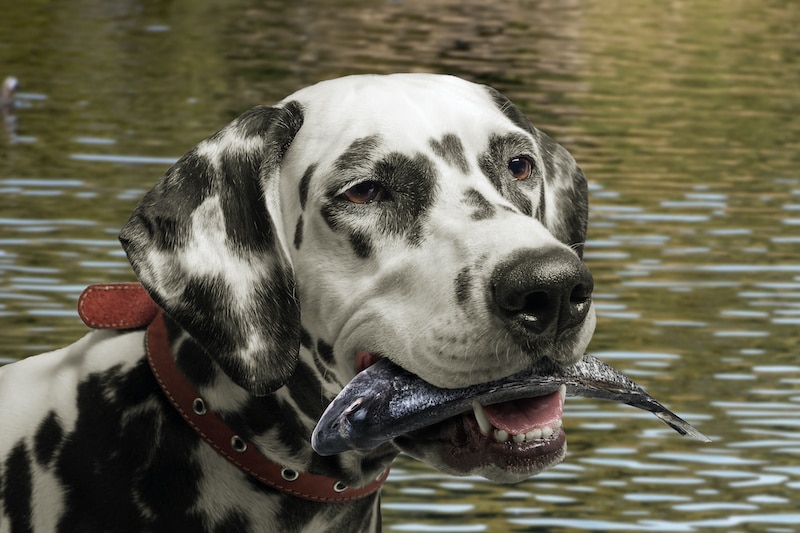

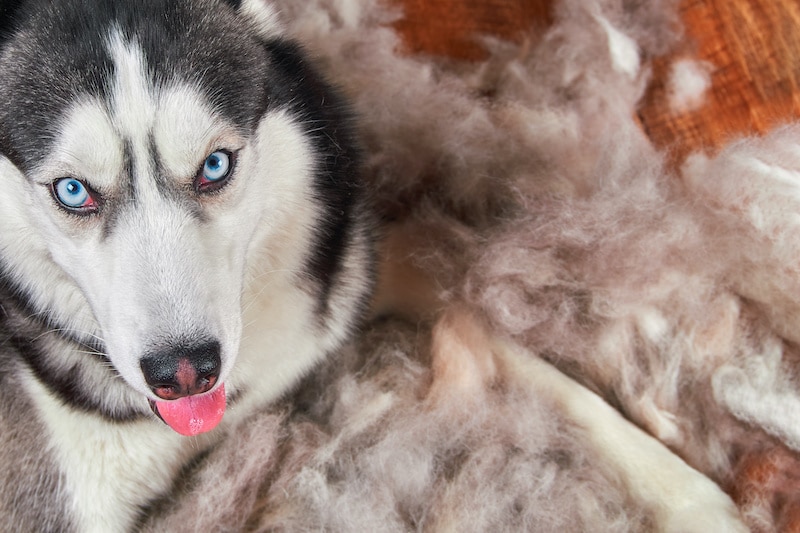

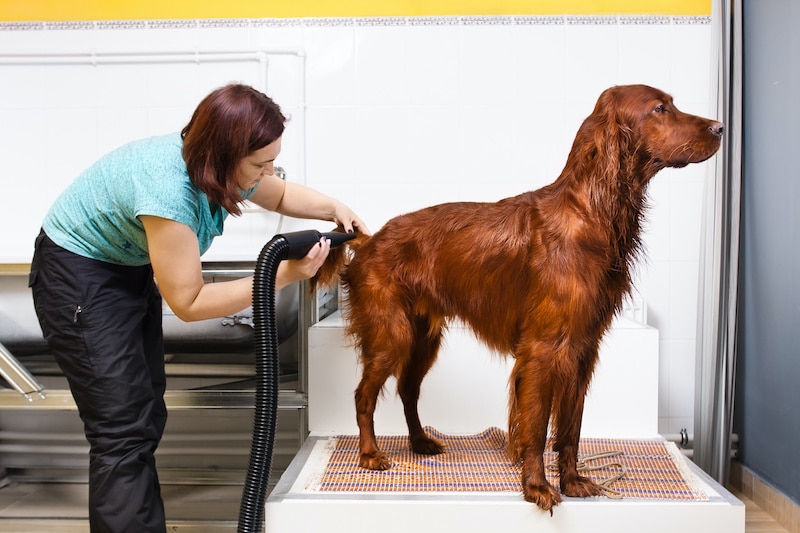



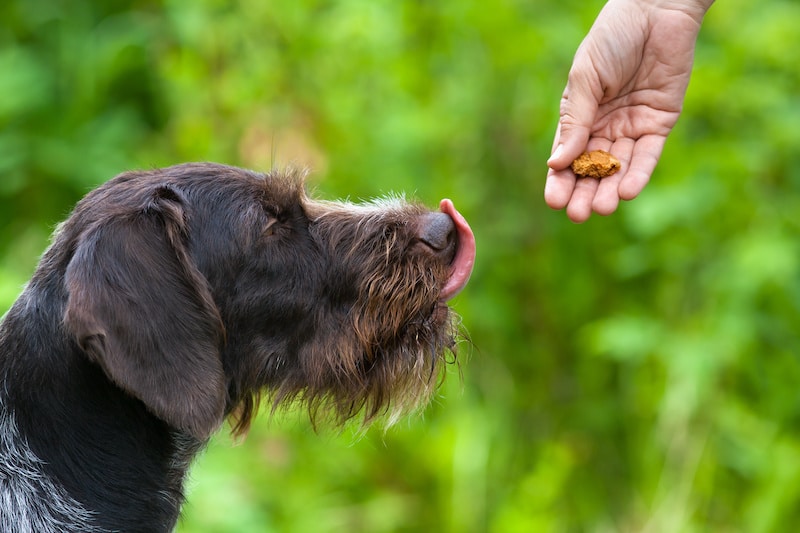

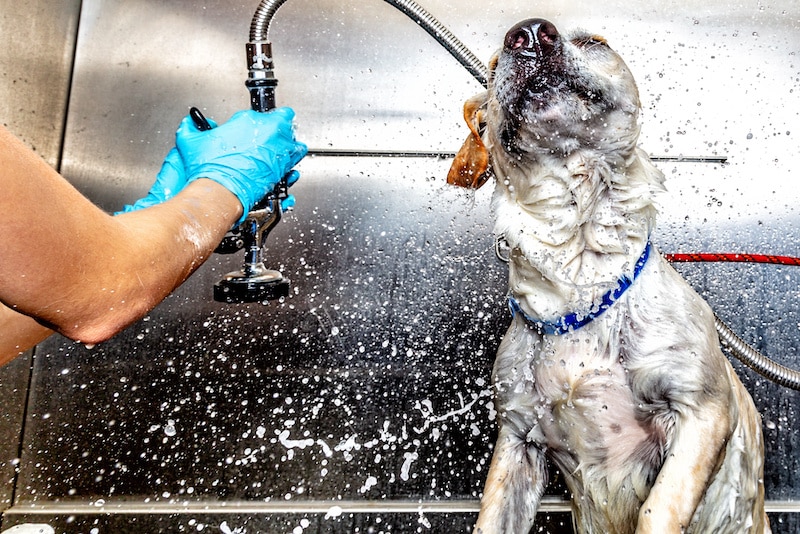
Please note: By submitting a comment using the above comment form, you confirm that you agree with the storage and handling of your data by this site as detailed in our Privacy Policy.